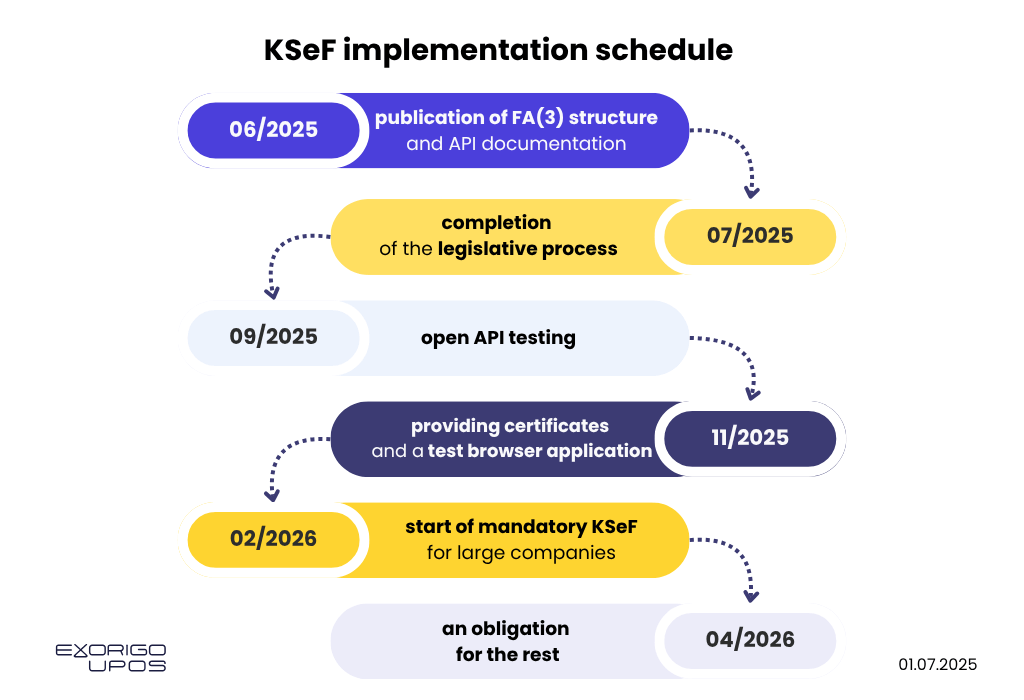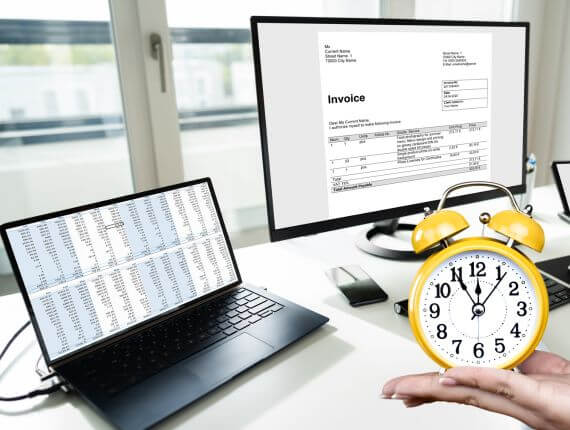The Ministry of Finance is not slowing down – as announced, it has provided programming tools for integrating IT systems with KSeF 2.0. According to the plans, on February 1, 2026, the “big bang” of the new e-invoicing system will be implemented. Companies must be ready to transition to the new e-invoicing system without a transition period. There is less and less time for preparation, and the list of tasks to do is long.
Integration tools provided
The Ministry of Finance has published a package of tools for integrators and IT departments, which includes:
- KSEF 2.0 API technical documentation was developed using the OpenAPI standard and detailed specifications (Open API JSON file).
- SDK libraries available in two programming languages: Java and .NET. They contain a set of tools and examples to facilitate integration with the system.
- Integrator Guide, which includes:
- instructions for using key system endpoints, detailed description of operation, examples of calls in popular programming languages
- overview of the most important changes between KSeF API 2.0 and the earlier KSeF API 1.0.
The documentation is available as an interactive technical portal, containing descriptions of methods, data structures, parameters, and examples. It can be found at: ksef.podatki.gov.pl/wsparcie-dla-integratorow
A clear separation of documentation and materials on the current state of the KSeF (1.0) available on the https://ksef.podatki.gov.pl/krajowy-system-e-faktur-w-okresie-fakultatywnym/ websites from the documentation on the target KSeF (2.0) available on the https://ksef.podatki.gov.pl/ksef-na-okres-obligatoryjny/ websites
The KSeF 2.0 API programming interface will be available for open testing for all integrators and large enterprises from September 30. This is the last call to prepare for this step.
On 27.06.2025, the Ministry of Finance presented a draft of changes in the JPK-V7M and JPK-V7K structures related to implementing the mandatory KSeF and the deposit system for quick consultations. The proposed changes are to enter into force simultaneously with the mandatory KSeF.
Final version of the FA e-invoice structure(3)
At the same time, 5 days ago, the Ministry of Finance published, as promised, the final version of the logical structure of the FA(3) e-invoice (template no. 13775), which will be in force under the KSeF 2.0 system. Compared to the May draft, the changes are minor:
- New ID and namespace: Change from draft (04031) to final (13775).
- New start date: FA(3) invoices will be accepted from September 1, 2025 (although the KSeF 2.0 test environment will be available from September 30, 2025)
- Minor technical corrections, indicating the finalisation of the scheme.
The FA(3) structure was created after extensive consultations with tax experts, accountants, local governments, and software providers.
The FA(3) template is available in the Central Repository of Electronic Document Templates on ePUAP – links can be found at: ksef.podatki.gov.pl/struktura-logiczna-fa-3
What does this mean for taxpayers?
Although the structure of FA(3) itself does not differ significantly from FA(2) (the most significant novelty is the “Annex” node), the real challenge is the implementation schedule:

- February 1, 2026 – full transition to KSeF 2.0:
- The logical structure of FA(2) is replaced by FA(3) – without a transition period.
- Certificates come into force (mandatory, m.in. offline24).
- A new KSeF 2.0 system has been launched, with historical data imported from version 1.0.
- Autumn 2025 – The KSeF 2.0 test environment is planned to be made available.
Who does the obligation apply to?
- From 1 February 2026, the obligation to use the KSeF for large taxpayers.
- From 1 April 2026 – obligation for others.
- All taxpayers will have to collect purchase invoices from the KSeF from 1 February 2026, regardless of the date of the obligation to issue them.
How to prepare?
Given such significant changes, we recommend contacting us. It is worth considering implementing solutions such as SmartKSeF.
It is a system that integrates with the KSeF and ensures the safe implementation of the Ministry of Finance’s new obligation. This makes it possible to transition to e-invoicing smoothly without disruption or stress.
SmartKSeF Trusted by Leading Enterprises for e-Invoice Processing:
Is Your Business Ready for Mandatory KSeF Compliance?
Time is running out. Act now.


